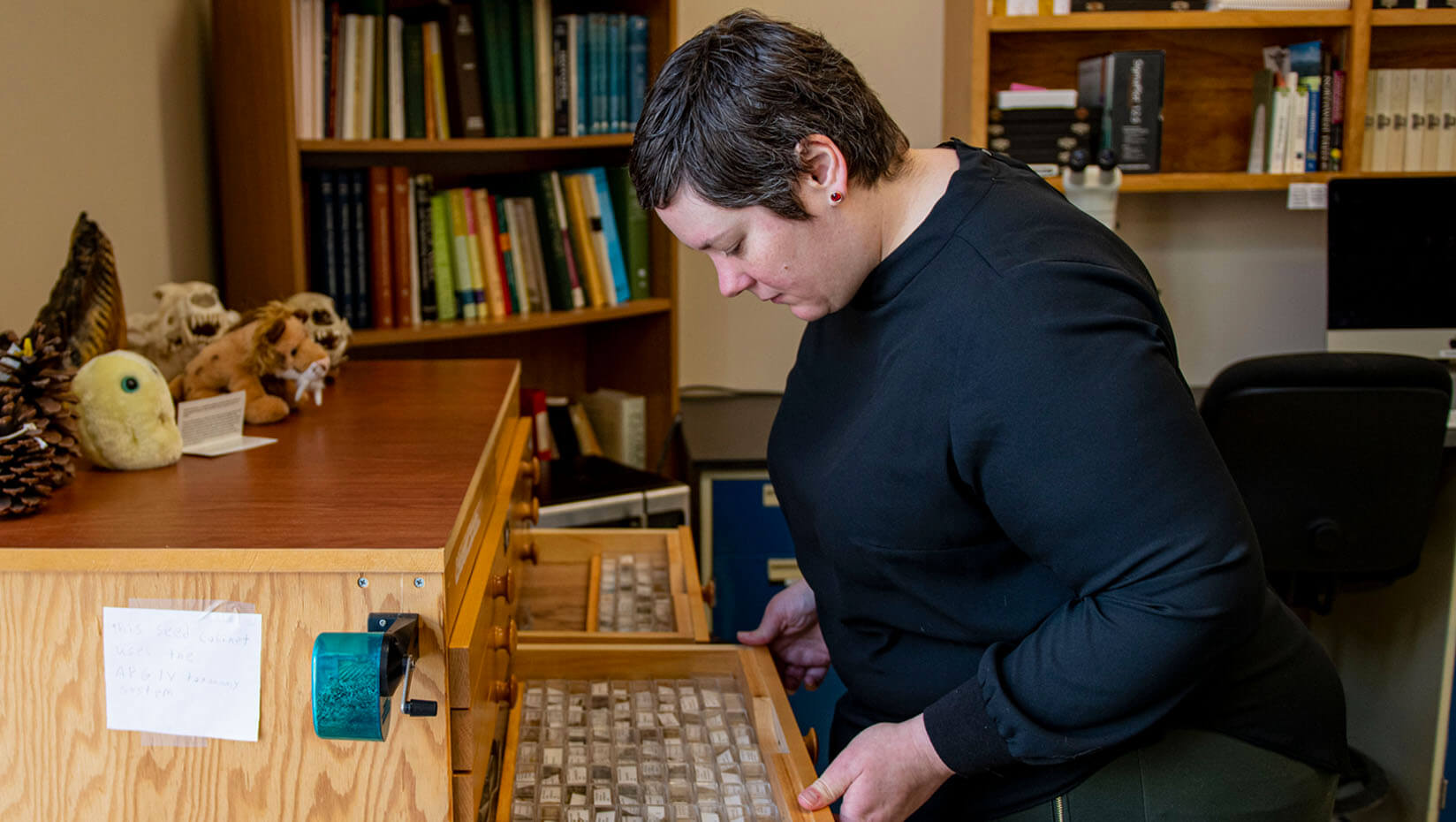
Gill presented with ‘Friend of the Planet’ award by National Center for Science Education
The National Center for Science Education has named Jacquelyn Gill a 2020 Friend of the Planet.
Gill is an associate professor of paleoecology and plant ecology at the University of Maine and cohost of the “Warm Regards” podcast. She studies past ecosystems, including the impacts of climate change and extinction, and the geographical distribution of living things through space and time.
“Both in her research and her outreach on climate change, Jacquelyn Gill has been nothing less than extraordinary,” said Ann Reid, executive director of NCSE.
As a publicly funded scientist and educator, Gill said that outreach is part of her job and that there are many ways that scientists can make their work accessible to the public.
“For me, social media and podcasting have been such a great way to connect with folks from all walks of life,” she said. “Whether we’re using Twitter to connect with classrooms from remote locations, or folks are using our podcast as part of a class curriculum, or I’m Skyping into a classroom across the country, we’re working to make sure science doesn’t stay locked behind the walls of a university.”
Gill said she’s honored to be recognized by NCSE as a Friend of the Planet. “They’re one of the most important organizations breaking down barriers so that every student has access to quality STEM education. Climate change can be a challenging subject for K–12 teachers, but it’s a vitally important one, and anything we can do as researchers and other climate professionals to make teachers’ jobs easier is so, so valuable.”
Last January, Gill’s “Warm Regards” was one of five nominees for “Best Green Podcast” at the iHeartRadio Podcast Awards 2020 in Los Angeles. Part of the podcast description reads: “We’re just as much a podcast about what it means to be human as we are about climate change — how we think, decide, love, grieve, change our behavior, and roll up our sleeves to tackle our toughest challenges.”
In 2018, she was a member of an international research team that took part in an expedition to Siberia to film “Lost Beasts of the Ice Age.” Gill and colleagues explored permafrost caves and examined mummies of woolly mammoths, woolly rhinos, wolves, lions and birds. “We want to capitalize on what the tunnels are revealing about lost worlds. These are the best specimens in the world,” Gill said. Science Channel subscribers can watch the 84-minute show online.
Also in 2018, she began exploring “Environmental Change and Extinction on the Mammoth Steppe” with funding from an $800,000 National Science Foundation CAREER Award. “Herbivores remain some of the most threatened animals today, so understanding the ‘Serengeti of the ice age’ can help in the management of Earth’s largest animals today, and may provide insights into the role native grazers play in a warming Arctic,” Gill wrote of the research.
On Twitter, more than 93,000 people learn from @JacquelynGill. Followers include Greta Thunberg, Sarah Parcak, the U.S. Department of the Interior, Tig Notaro, Margaret Atwood, Ava DuVernay, Bill McKibben, Popular Science, Sally Kohn, and The Nature Conservancy.
The two other recipients of the 2020 Friend of the Planet award are Frank Niepold, senior climate education program manager and coordinator at NOAA’s Climate Program Office and founding member and co-chair of the leadership board of CLEAN (Climate Literacy and Energy Awareness Network); and Spencer Weart, the physicist-turned-historian who wrote “The Discovery of Global Warming.”
For more than three decades, the Oakland, California-based NCSE has worked to ensure that what is taught in science classrooms and beyond is accurate and consistent with the best current understanding of the scientific community.
Beth Staples, beth.staples@maine.edu
